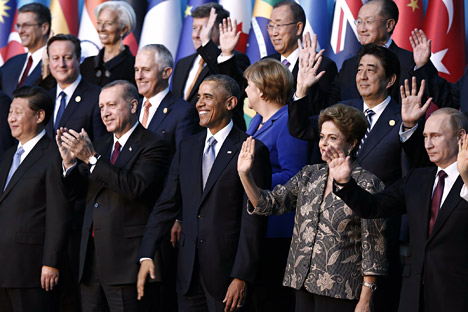
The 2015 G-20 Leaders Summit is held near the Turkish Mediterranean coastal city of Antalya on Nov. 15-16, 2015.
APRussian President Vladimir Putin and his U.S. counterpart Barack Obama spoke on the margins of the summit ahead of the G20 Leaders' Sessions. The conversation lasted for about half an hour.
According to the Russian leader's aide Yury Ushakov, Putin and Obama discussed the situation in Syria and Ukraine, with more attention being given to the situation in Syria.
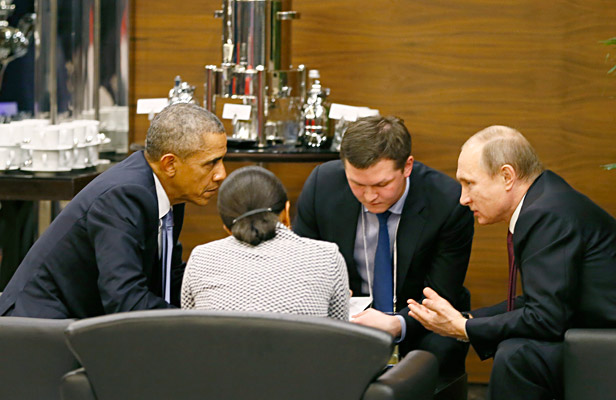
U.S. President Barack Obama (L) talks with Russian President Vladimir Putin (R) and U.S. security advisor Susan Rice (2nd L) prior to the opening session of the G20 summit in Antalya on Nov. 15, 2015. Source: Reuters
Responding to a question on whether the leaders of the Russian Federation and the United States had managed to make progress in reconciling their positions on Syria, the Russian official diplomatically pointed out that Russia and the United States' strategic objectives in the fight against terrorism are very close, but differences remain on tactics.
On the sidelines of the summit, at a meeting with Italian Prime Minister Matteo Renzi, Putin spoke about the ongoing investigation into the crash of the Russian passenger airliner in Egypt.
"We are at the final stage of studying materials," said the Russian leader.
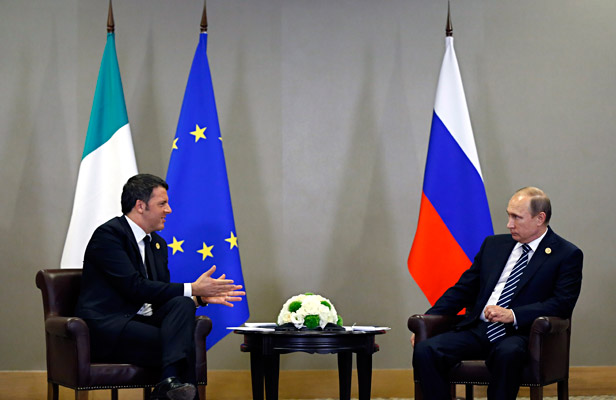
Russian President Vladimir Putin meets with Italian Prime Minister Matteo Renzi on Nov. 16. Source: EPA
Concerning the investigation, Russian presidential spokesman Dmitry Peskov said on Nov. 16 that none of the theories regarding the Russian plane crash in Egypt could be ruled out. As Deputy Foreign Minister Oleg Syromolotov said at the same time, no specific data on the causes of the crash of the Russian plane was yet available.
However, it has now emerged that forensic specialists have confirmed the presence of explosive elements on the wreckage of the airliner.
Gazprom chief Alexei Miller said in Antalya that the Turkish Stream project, involving the delivery of Russian gas to Turkey via a pipeline beneath the Black Sea, could be implemented in a very short period once a corresponding intergovernmental agreement is signed.
However, in July, Russian media reported that the project had been frozen by Gazprom due to disagreements with the Turkish side over the cost of Russian gas. Ankara insists on a 10-percent discount.
The Russian authorities have denied reports the project has been scrapped. In Antalya, Miller attributed the possibility of the prompt implementation of Turkish Stream to the fact that its route is 70 percent identical to the route of the abandoned South Stream pipeline (intended to supply Russian gas to Central Europe via the Balkans – RBTH), where the necessary research had already been carried out.
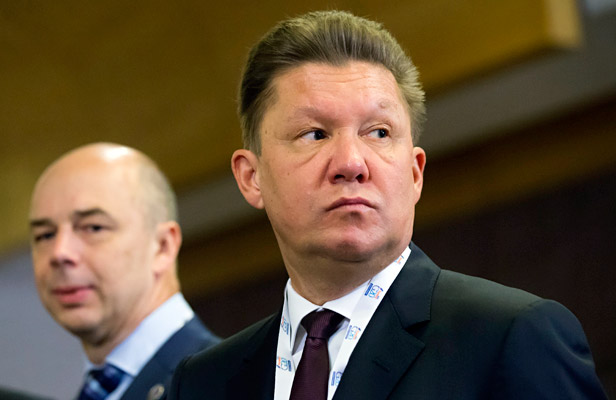
Russia's natural gas giant Gazprom's CEO Alexei Miller, right, and Finance Minister Anton Siluanov. Source: AP
According to Energy Minister Alexander Novak, the implementation of Turkish Stream was discussed on the sidelines of the summit by Vladimir Putin and his Turkish counterpart Recep Tayyip Erdogan. According to Novak, the work on an intergovernmental agreement will continue as soon as a government is formed in Turkey, where parliamentary elections have been recently held.
The issue of the entry into force of the EU-Ukraine Association Agreement was discussed "quite extensively” during talks between the leaders of Russia and Germany on the sidelines of the G-20 summit, said Russian presidential press secretary Dmitry Peskov.
"Unfortunately, our contacts with the Europeans and the Ukrainians are not bringing the desired results and the consequences of the entry into force of this agreement still remain negative. Attempts to discuss these issues have not been successful," he said.
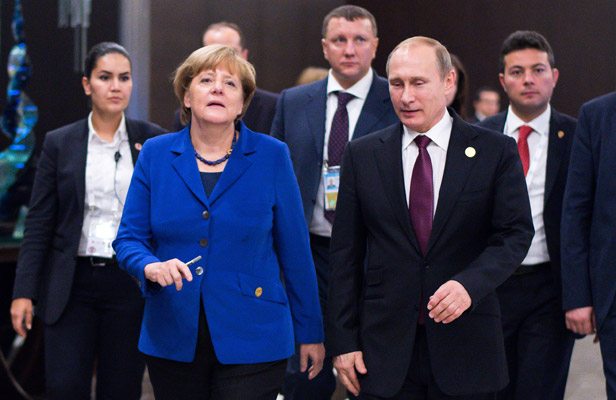
German Chancellor Angela Merkel (front L) and Russian President Vladimir Putin (front R) make their way to bipartisan talks within the scope of the G20 Summit in Belek on Nov. 15. Source: AFP/East News
Moscow has repeatedly stated that in its present form the association agreement harms Russian economic interests. On Oct. 30, Russian Prime Minister Dmitry Medvedev said that in response to the agreement's entry into force that the Russian Federation would increase "customs and tariff protection regarding Ukraine" from Jan. 1, 2016.
All rights reserved by Rossiyskaya Gazeta.
Subscribe
to our newsletter!
Get the week's best stories straight to your inbox